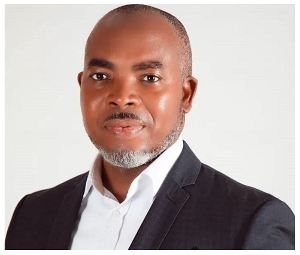- Home - News
- TWI News | TV
- Polls
- Year In Review
- News Archive
- Crime & Punishment
- Politics
- Regional
- Editorial
- Health
- Ghanaians Abroad
- Tabloid
- Africa
- Religion
- Election 2020
- Coronavirus
- News Videos | TV
- Photo Archives
- News Headlines
- Press Release
Business News of Saturday, 23 May 2015
Source: B&FT
CEIBS Prof. disappointed in Ghana’s economic dev’t
A Professor of Economics at the China Europe International Business School (CEIBS), Bala Ramasamy, has expressed disappointment at Ghana’s chequered economic growth and pace of development after years of being branded the beacon of hope in a continent ravaged by poverty and social unrest.
Professor Ramasamy first visited Ghana about four years ago and noted that the capital projects, industrialisation, job-creation, and the skylines of the country especially have not matched the economic growth numbers recorded over half a decade ago.
Comparing Ghana to other compatriots that gained independence around the same time, like Malaysia and Singapore, Ghana, according to him has and is still not seeing changes that characterise developing countries.
“When you are in China’s cities like Shanghai, Beijing and you leave and come back in three or six months later, you see vivid change. You might go to the same hotel every time, but when you come out you will find you don’t know where you are and it takes a few minutes to figure out where you are because of the changes that happen in these places.
“Even in Kuala Lumpur, Malaysia, when I go to some parts of the city you have to think for a while to get your bearings right,” he said.
Unfortunately, even though this is the fourth straight time he is in Ghana, every time the country looks the same without any of the significant infrastructural changes that typically characterise economies which are growing at rates of 6 percent on an average.
“Where I am coming from, I actually don’t see change in these four years that I have been coming here. “
He noted that infrastructure projects and commercial and residential real estate projects have been under construction for more than four years, and they are still uncompleted. For a developing country, he said, Ghana must be in a situation where visitors come back in six months and get lost because of visible changes.
“If you don’t see that, then what progress are we talking about? The minimum progress has to be infrastructure. It has to be some building or infrastructural development -- but that is not there, especially if you compare to places like Shanghai, Kuala Lumpur and Singapore. You may be able to boast of economic growth of 5 to 6 percent, but I am afraid I don’t see it.”
The story of economic growth and why Ghana and Africa, in general, is not growing is intriguing. When Ghana gained its independence in 1957, the economy was better off than that of South Korea and Malaysia.
Ghana, as a lower middle income country, has now signed a three-year International Monetary Fund (IMF) bailout agreement to support a fluctuating currency and restore policy credibility to attract foreign direct investment.
The total government debt as against GDP stands at over US$70billion, while government’s borrowing has seen interest on government’s securities shoot up to over 25 percent and inflation hovering around 16.8 percent.
But today South Korea, Malaysia and Singapore are now manufacturing, commercial and financial centres and can easily be classified as first world economies, while Ghana is still struggling as a middle income nation.
South Korea's market economy ranks 13th in the world by both nominal and purchasing power parity GDP, identifying it as one of the G-20 major economies.
It is a developed country with a high-income economy and is the most industrialised member-country of the Organisation for Economic Cooperation and Development (OECD), an international economic organisation of 34 countries founded in 1961 to stimulate economic progress and world trade.
South Korea's economy was one of the world's fastest-growing from the early 1960s to the late 1990s, and South Korea is still one of the fastest-growing developed countries in the 2000s along with Hong Kong, Singapore and Taiwan, the other three Asian Tigers.
The South Korean economy is heavily dependent on international trade, and in 2013 South Korea was the 8th-largest exporter and 7th-largest importer in the world.










